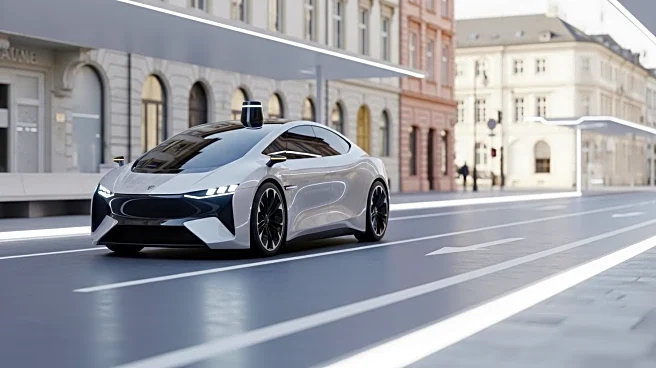What is the story about?
What's Happening?
Jelle Prins, known for developing Uber's first app, discusses the future of autonomous vehicles in Europe, highlighting the gradual introduction of adaptive technologies. While the U.S., China, and the UK are advancing rapidly in autonomous vehicle deployment, Europe faces challenges due to inconsistent infrastructure and regulatory fragmentation. The European Commission is funding research into driverless public transport, but commercial adoption lags behind other regions. Prins envisions a future where self-driving cars transform mobility, but acknowledges the need for harmonized standards and investment.
Why It's Important?
The development and deployment of autonomous vehicles could significantly reshape urban landscapes and transportation systems. In Europe, the lack of consistent infrastructure and regulatory frameworks poses challenges to widespread adoption. Harmonizing standards and accelerating investment are crucial for Europe to keep pace with global advancements. Autonomous vehicles promise to enhance urban livability and accessibility, but also raise ethical and cybersecurity concerns. Addressing these issues is vital for ensuring safe and equitable integration of autonomous technology.
Beyond the Headlines
The rise of autonomous vehicles could disrupt employment in the transportation sector, necessitating reskilling programs for affected workers. Ethical dilemmas, such as decision-making in crash scenarios, require careful consideration to align AI systems with human values. Cybersecurity risks also need to be addressed to protect passengers and transportation systems from potential threats. The future of autonomy depends on overcoming these challenges and creating a supportive infrastructure.

















